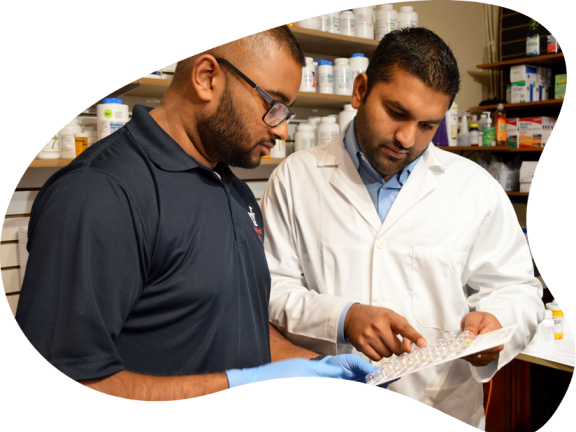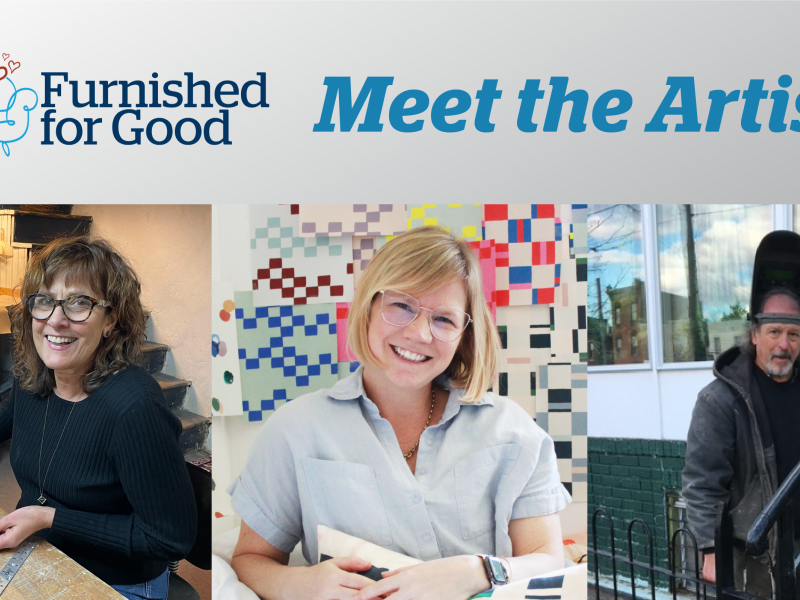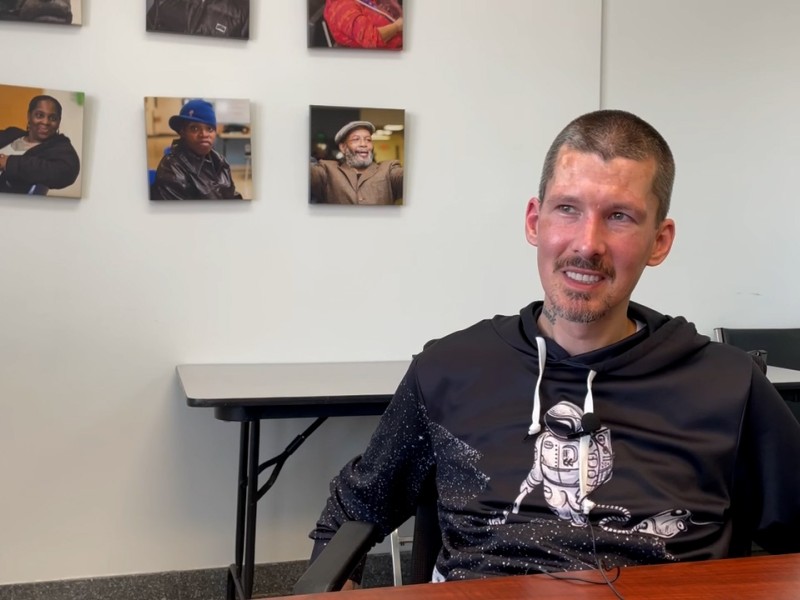Shop and Carry, Our Long Time Partners

In my role as Director of Training and Technical Assistance for Pathways’ Housing First University, I regularly receive requests to tailor our trainings to the specific needs of organizations and diverse client populations. Last month, while preparing a presentation for students in Thomas Jefferson University’s Academy of Student Pharmacists, I reached out to a longtime Pathways’ partner, Dr. Jittu George, Pharm. D., for his insight on what pharmacy students might need to know about working with individuals experiencing homelessness, who are managing psychiatric disabilities and substance use disorders. In the midst of unpacking his first shipment of COVID-19 vaccines, Dr. George took the time to craft this incredibly thoughtful response that clearly needed to be seen by more eyes than my own:
My first job at [a chain pharmacy] molded me into a great worker and shaped the backbone to my career as a pharmacist. I worked at [this] store in Philadelphia all throughout college and contributed as a pharmacist there for a few years after graduation.
Opening my own pharmacy, Shop and Carry Pharmacy (SAC), was a life-changing choice. Although the move to an independent business developed out of frustrations from the long and brutal 14 hour shifts at [a chain pharmacy], it soon turned into much more. I learned how to truly provide compassion and not just medication. There is something called “chain culture” in the pharmacy world. You simply work to meet the goals set up for you and your store. Eventually, you learn to take emotions and passions out of the picture. You fill as many prescriptions as you can and do as many vaccines as you can so that you don’t fall behind expectations. While doing this, the interaction between a pharmacist and a patient is broken down to providing only the bare minimum. Speed and accuracy was of the utmost importance here, not building a relationship or having a repartee with a customer.
Although pharmacists are some of the most accessible healthcare professionals in the community, we are also the most system bound. We often have very little time to create meaningful interactions. I blame the poor reimbursements that force pharmacists to focus more on script count, and the “chain culture” that supports it.
Working at SAC and partnering with Pathways and other similar organizations provided me with ample opportunities to see situations from a different perspective. These past few years have brought me back to earth and helped me relearn. We are now able to make a meaningful impact on hundreds of lives on a daily basis. Most of our patients are homeless or previously homeless, psychiatrically ill, and/or suffering from opioid use disorder. These patients are often shunned by chain pharmacies.
My patients are sometimes not polite. They lose their medications one too many times. They ask for their meds early. They need special packaging. They need home delivery due to a lack of transportation, and they don’t have money for their copays. But they are also homeless. They suffer from opioid use disorder and many are psychiatrically ill. I eventually learned that I had no business judging.
It’s a simple thing that we all should know - to not judge a person based on their life situation - but when we grow up even a little bit privileged, we also indirectly learn to judge and shun those who are in a worse off situation. My patients are simply trying to live in and through the conditions, they have been subjected to. But when they come to SAC, they know they will be treated well. We are always here to take a moment to speak with them, even if it is as simple as being a part of their life by hearing the stories that shape them into who they are, or simply by just lending an ear when they need it. We have had patients come in and shop with us because they know that we operate a judgment-free zone where they can be themselves, and we will still care. We see each individual as just that—an individual—with their own stories and a life overcome with hardship. Many of them are in the state they are in due to a system that failed them. We guide them as best as we can towards a better life through the medication they need, which in turn, helps them progress and persevere. Through that, we are able to make a social impact. As we all know, it takes just one person to set in motion a chain of events and just by bettering someone’s life, we hope that we can help them have better opportunities.
During my last year of pharmacy school, I picked the easiest rotation sites. I did not have courses offered to me on social determinants of health, patient psychology, or how to interact with patients suffering from behavioral health challenges. Neither did I have any experience working at community organizations that worked with these patients. I essentially had to learn through experience in the field at SAC. We now save lives without being bound to any of the “chain culture” goals, and to be honest, I get a sense of purpose from doing so.
In the past few months, we have also lost a handful of patients to COVID, opioid use disorder, and other associated conditions. Some of them were patients I have had for the last several years and would see multiple times a week. When patients become more than just numbers and scripts, you also start to feel the grief and sadness once they pass.
The majority of any given graduating class at a school of pharmacy will end up working for a chain pharmacy and will cater to the “chain culture”. A well-rounded education should provide insight into all manner of life and, as such, pharmacists should all do their best to gain some experience working with the lesser privileged part of society so that empathy and compassion will be developed in addition to the knowledge they learn. Only in this manner can we help make a better social impact and help improve lives across the board.


